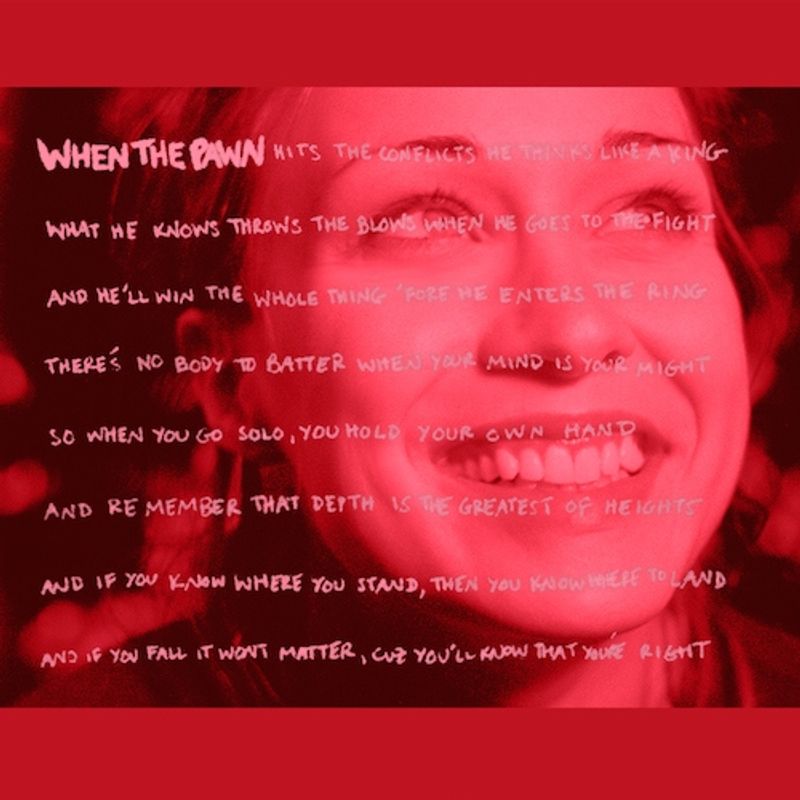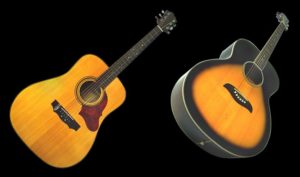Fiona Apple’s When the Pawn…
November 17, 2022
“When the pawn hits the conflicts he thinks like a king
What he knows throws the blows when he goes to the fight
And he’ll win the whole thing ‘fore he enters the ring…”
(Excerpt from When the Pawn… title poem by Fiona Apple)
After the success of her first album, Tidal, some expected Fiona Apple’s music to fizzle out in the mess of the persona given to her by the media. But her sophomore album, released in 1999, only proved her worth as a musician and established her as an important artist. With her typical lyrical prowess and harsh emotional quality to her songs, When the Pawn… is an excellent album worth listening to.
Like Tidal, When the Pawn… is rife with her familiar themes of self-loathing, unreliable relationships, and general angst. Unlike Tidal, When the Pawn… attacks these themes with a sense of aggression, which, mostly resting under the surface in the sadder Tidal, comes to a clear light in this album. One of the defining features of When the Pawn… is raw, angry lyrics.
“On the Bound”
“On the Bound” reflects a sense of turning a page in your life, and not knowing what to do. Fiona sings to her lover, relying on them to keep her steady. In the chorus, she sings, “You’re all I need” repeatedly, in a tone I interpret as being both declarative and desperate. The song ends on an almost hopeful note, singing “And maybe some faith would do me good”.
“To Your Love”
I interpret this song as being directed toward an audience, rather than someone in her life. The opening line, “Here’s another speech you’d wish I’d swallow,” could be interpreted as a reference to her infamous “This world is bullsh*t” speech at the VMAs a few years prior.
“Limp”
“Limp” is a song about an unhealthy relationship and being angry at your partner for the way they treat you. The opening lines, “You wanna make me sick, you want the badge of honor when you save my hide, don’t you, baby?” prove this much. The chorus escalates into “So call me crazy, hold me down, make me cry…it won’t be long before you’re lying limp in your own hands.”
“Love Ridden”
“Love Ridden” is a song about the transition toward the end of a relationship, and finally, simply giving up. She describes this process, “Only kisses on the cheek from now on / In a little while, we’ll only have to wave,”.
“Paper Bag”
“Paper Bag” enjoyed the most mainstream success on the album, and it’s easy to understand why. With snappy lyrics, the song is upbeat sounding, yet angsty. The lyrics describe unrequited love and implications of anorexia, yet it manages to maintain a certain sweetness, contrasting with the rawness of other songs in the album.
“A Mistake”
Some criticized this song for being a “knockoff” of “Criminal” , a song from her previous album. I think the song stands fine on its own. “A Mistake” is about wanting to make trouble for yourself, to break out of doing what people want and expect you to do, even if it’ll hurt you.
“Fast As You Can”
This is my personal favorite song on the album. It’s also the angriest, the main chorus nearly shouting. It’s about Fiona insisting her lover leave her because she’s going to hurt him. She sings, “O Darling, it’s so sweet, you think you know how crazy, how crazy I am”. She urges her lover to run from her, insisting he “Scratch [himself] out, free [himself] / Fast as [he] can”.
“The Way Things Are”
This song is about feeling like you’re better off without someone. It’s sung in a sad tone, though, and is about not feeling ready for a relationship. The chorus begins “So keep calling me names, keep on, keep on.” She doesn’t want to be friends: it’s best if things stay the way they are.
“Get Gone”
“Get Gone” is exactly what it sounds like: tell someone to get out of your life. She can’t begin to heal until this person is gone, and simply can’t deal with being around this person anymore. She’s done what she can, but now there’s nothing left for her because “he don’t give a sh*t about me,”.
“I Know”
The last song on the album, “I Know” is about having an affair with a married man. This song carries a sense of great resignation to it. As if, after emptying her anger into the previous songs, Fiona slips into a sense of reluctant acceptance. The ending lyrics, “And if it gets too late for me to wait / For you to find you love me, and tell me so / It’s okay / Don’t need to say it” echo this passive declaration of her love.





























































































































